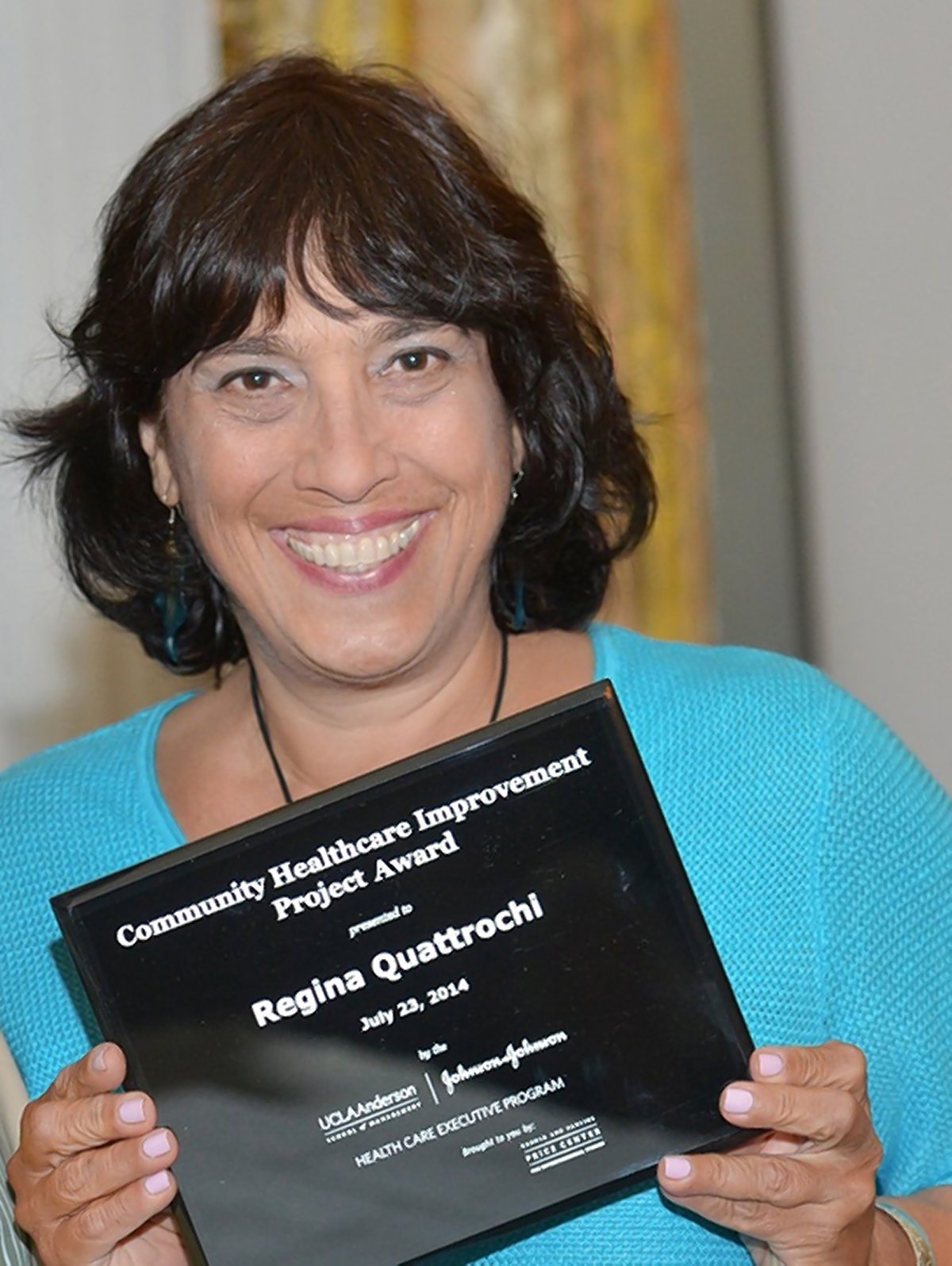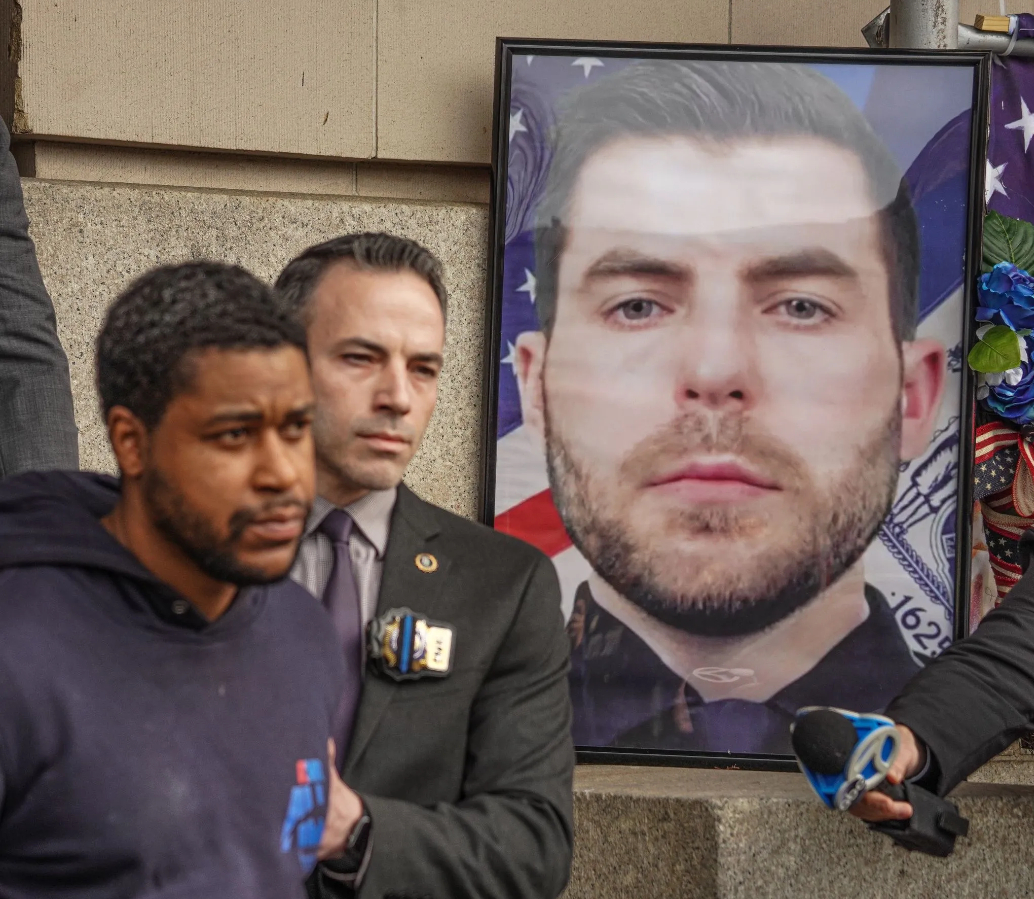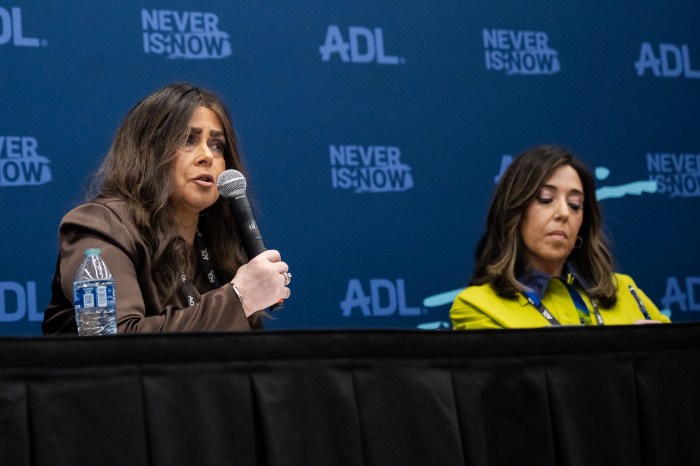
BY DUNCAN OSBORNE | After fighting a two-year battle with cancer, longtime AIDS housing activist Gina Quattrochi succumbed to the disease on Dec. 13. She was 63.
Quattrochi was the chief executive at Bailey House starting in 1991. At that time, Bailey House was already operating Bailey House, later named Bailey-Holt House, at the west end of Christopher St., as a congregate residence for people with AIDS.
During her tenure, Bailey House opened a service center in East Harlem and a second residence in East Harlem. Currently, Bailey House offers a range of services to some 1,800 clients with AIDS and other illnesses throughout the city.
“Gina’s commitment and dedication to her work and her tireless advocacy leave an indelible and permanent legacy,” the Bailey House board of directors said in a statement. “Her life touched countless people, and her vision and passion left a deep impact on those who knew her.”
“Gina’s prior work was as an employee-side labor lawyer,” Charles King, the chief executive at Housing Works, wrote in a remembrance of Quattrochi on the Housing Works Web site. “Fighting for the underdog was in her genes. She was most passionate about advocacy with and for homeless people living with H.I.V. and AIDS — especially young people. Like those of us who started Housing Works, she was totally committed to proving that housing is an essential H.I.V. intervention that ranks at least as highly as medical care, if not higher.”
Quattrochi was among the activists appointed by Governor Andrew Cuomo to the task force that drafted the Plan to End AIDS, an ambitious undertaking that aims to reduce new H.I.V. infections statewide from the estimated 2,500 in 2014 to 750 a year by 2020. While the plan is supported by solid science, it has not been supported financially by the Cuomo administration.
At an August 2015 meeting that was little more than a pep rally for the plan, Quattrochi was the sole advocate to question whether there would be sufficient funding for the initiative, and she estimated that it would cost up to $500 million to implement.
Quattrochi lived long enough to see a longtime goal fulfilled — extending services at the city’s H.I.V. / AIDS Services Administration, or HASA, to financially qualified people with H.I.V. Prior to the implementation of HASA for All, the unit only helped house, insure and feed people who had an AIDS diagnosis.
At a 2015 press conference on the steps of City Hall with City Councilmember Corey Johnson, who represents the Village and Chelsea, Quattrochi described a conversation with a friend whose son was recently diagnosed as H.I.V.-positive. He was struggling to find housing and the mother asked for advice.
“I had to ask that stupid question that we have to ask every time: ‘Does he have AIDS?’” Quattrochi said. “If we are serious about ending this epidemic…we have to provide housing.”
The Plan to End AIDS relies on giving anti-H.I.V. drugs to H.I.V.-negative people to keep them uninfected and treats H.I.V.-positive people with those drugs so they are no longer infectious.
At the dedication of the NYC AIDS Memorial on Dec. 1 in the West Village, Quattrochi received an honor from the city’s Department of Health.
In a statement, Gay Men’s Health Crisis praised Quattrochi.
“We mourn the loss of Gina Quattrochi, who was a force of nature in the fight against the epidemic, transforming the conversation about H.I.V. / AIDS and homelessness,” the statement read. “Her perseverance and innovation as the C.E.O. of Bailey House has been critical in delivering housing programs and services to those living with H.I.V. / AIDS in New York City and beyond.”
Quattrochi, who lived in Harlem, is survived by her two adult children, Giovanni Quattrochi and Anna Lenes.

















